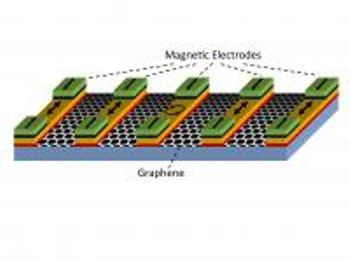The National Science Foundation (NSF) and the Nanoelectronics Research Initiative have awarded a $1.85 million grant to the University of California-Riverside (UC, Riverside) to develop a new method of computing that has the capability to process huge volumes of data at high speeds and include salient features such as image recognition, data compression and internet browsing.
 UC Riverside
UC Riverside
The four year grant was awarded under the “Nanoelectronics for 2020 and Beyond” competition held by NSF and the Nanoelectronics Research Initiative.
The research will be headed by Roland Kawakami who is the professor of physics and astronomy at UC, Riverside. Under this study, researchers will analyse the possibility of using the degree of spin-in electrons for storing and processing information and integrating the memory and logic functions on to a single chip. The spin in an electron contributes to its magnetic property and the different spin states of an electron can lead to different magnetic pole orientations in the electron. In order to carry out computing from electrons, data is stored while the electrons are in their spin state.
Under the study, researchers will develop a new device called the magnetologic gate, which will play a role equivalent to that of a transistor in traditional electronics. The magnetologic gate is made of graphene connected to magnetic electrodes. Logical operations are performed when the electrons move within the graphene in their spin state as they compare the information which is stored in the magnetic electrodes. While the experiment will be carried out by UC, Riverside and UC, Irvine the design and the theory of the circuit will be carried out by UC San Diego, SUNY Buffalo and the University of Rochester.